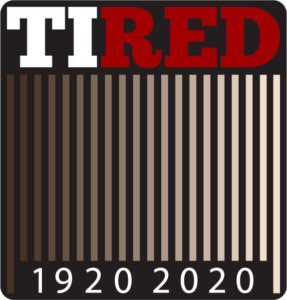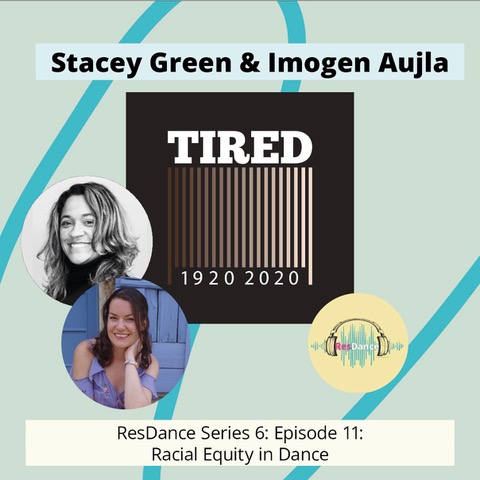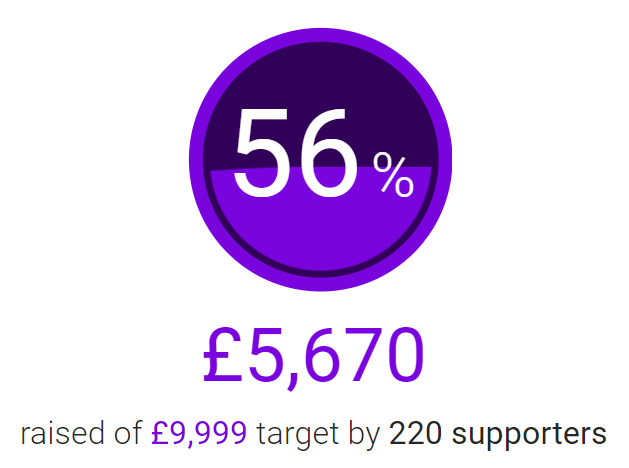
Red Research Project
The TIRED Movement have been working tirelessly to engage with schools, colleges, awarding bodies and organisations to encourage them to see the value of the movement and how working as a collective to drive the changes is paramount. Delivering CPD training, providing valuable insight through symposiums and talks.
Through discussions with some of the leading vocational performing arts colleges in the UK, we have now partnered with the following colleges, who have all pledged to support the movement and be part of a 3-year research project that looks into the impact of having little or no representation in dance education. This project will culminate with the development and pilot of a new framework that will be embedded in all Performing Arts colleges.
In order to understand the reasons why less than 20% of the intake of a college are from the global majority, and why…
- Of the 36 adjudicators listed on the All England Dance adjudicators directory, not one of them is black.
- Of the 240 adjudicators of the British Festival Federation, not one of them is black
- RAD (Royal Academy of Dance) website claims to have a panel of over 200 examiners with their photo images displayed online, not of them is black.
- There are 22 board directors pictured on the IDTA (International Dance Teachers Association) website, not one of them is black.
- Of the 42 adjudicators in this country that are registered to the British Festival Federation, not one of them is black nor has there ever been a person of colour represented in that organisation.
- Nine tenths of bosses at the country’s 50 highest-funded theatres are white, with people of colour making up just 8% of leaders.
Children only know what they see, and the statistics prove that the need for more education around ethnic inclusion and racial equity is paramount.
PARTNERED COLLEGES
- BIRD College, Sidcup
- Performers College, Essex
- Performers College, Birmingham
- Laine Theatre Arts, Epsom
- Italia Conti, Woking
- ICTheatre, Brighton
- READ College, Reading
- London Studio Centre, London
- Shockout Arts, Manchester
RESEARCH PROJECT
Year 1: CONSULTATION – We will work with colleges to create focus groups that will meet regularly and ensure that the chosen ambassadors are supported throughout this project, with considerations for their wellbeing and mindful of safeguarding.
Year 2: DEVELOPMENT – We will work with colleges and the ambassadors to develop ideas for equity inclusion, and explore the eventual structure of the framework.
Year 3: IMPLENTATION – All colleges have agreed to implement the pilot framework.
All colleges will have the opportunity to collaborate with other colleges to share best practice in order to improve racial equity, inclusion, and representation in dance education. This will be the first time a project of this magnitude will be a collaboration of some of the best colleges in this country.
We are so excited to partnering with all the colleges and appreciate their support and understanding of the importance of this project. But we could not do this without the amazing Imogen Aujla, who will be our Lead Researcher throughout the next 3 years.

Latest Additions
The impact of racial discrimination on the well-being of dance students - 24/09/2024
The TIRED Movement team and Dr. Imogen Aujla are excited to announce that the first paper from the Representation and Equity in Dance (RED) research project has officially been published! This ground-breaking research is vital to call for improvements to be made across levels of representation, diversity and inclusivity within dance education.
This paper reports on the results of an online survey completed by 150 students in professional dance training. We examined relationships between experiences of racial discrimination and indicators of psychological wellbeing (life satisfaction; perceptions of autonomy, competence and relatedness; body image; future competence perceptions). Overall, experiences of discrimination were negatively correlated with wellbeing – meaning that greater or more frequent experiences of discrimination were associated with lower wellbeing. These findings mirror numerous studies in mainstream psychology, but to our knowledge is the first time they have been empirically established in dance.
How do I read the full paper?
This paper is open access meaning that it’s free to access – so please download, read, and share, and let’s use this evidence to help drive change in the industry.
You can find the journal page here
Let this study be a catalyst for change in the dance community, where every dancer feels seen, valued, and empowered to express their true selves.
Abstract:
“Little is known about the impact of racial inequity in dance contexts. This study aimed to investigate the effects of racial discrimination on the well-being of dance students from Global Majority backgrounds. A total of 150 students (109 from White backgrounds and 40 from Global Majority backgrounds) in professional training completed an online survey tapping into several domains of psychological well-being and experiences of discrimination. The analyses revealed that, although there were no significant differences in well-being scores between the two groups, Global Majority students scored significantly higher on all measures of discrimination except for threat/aggression. Furthermore, there were significant negative correlations between discrimination and well-being among Global Majority students. Discrimination at work/college and experiences of exclusion/rejection appeared particularly influential in relation to measures of life satisfaction, competence, expectations of future competence, autonomy, relationships, and body appreciation. Responses to open-ended survey questions indicated that Global Majority students were as ambitious as their White peers but often cited discrimination as a potential barrier to career establishment post-training. The impact of discrimination in dance is an important research area, and further research is encouraged with larger samples of dancers at a range of levels (e.g., recreational, student, professional). On a practical level, organizations and individuals must work to reduce inequity in dance training and beyond.”
This paper presents the voices and lived experiences of students engaged in professional dance training, shedding light on the complex relationship between racial discrimination and psychological wellbeing. For the first time in the dance world, we’ve brought empirical evidence to a heartbreaking truth already well-established in broader psychological research: that racial discrimination doesn’t just affect the moment, it leaves a lasting impact on mental health and wellbeing.
Many of us view dance as an art, a source of joy, expression and connection. Yet, hearing from students during this research project, dance education has become a space where they face barriers, challenges and a negative impact on their mental health.
We are calling for action and asking you to read this paper to bear witness to the often-unseen struggles of students who pour their blood, sweat and tears into their dance training, all while carrying the burden of discrimination.
Change starts here!
“The more voices we hear, the louder we become.”
Funding
This research was funded independently by the TIRED Movement and received no external funding.
The RED Research Project has been conducted by Dr. Imogen Aujla, Stacey Green, Laura Grant, Amy Gibson and partnered colleges: BIRD College, Laine Theatre Arts, London Studio Centre, ICTheatre, Performers, READ College and Shockout.
Contact:
Podcast Series 6: Episode 11: Racial Equity in Dance with Stacey Green and Imogen Aujla - 14/06/2024

ResDance Podcast: Racial Equity in Dance
Series 6: Episode 11: Racial Equity in Dance with Stacey Green and Imogen Aujla
TIRED co-founder Stacey Green and lead researcher Dr. Imogen Aujla share their insight on the latest ResDance podcast. Listen to find out more about their thinking and considerations around racial equity in dance.
Key Findings - 07/07/2023
Key Findings
Researcher Dr. Imogen Aujla has discovered some key findings within the first phase of the RED Research Project focus groups and surveying.
Global Majority students scored significantly higher than white students for experiences of lifetime exposure to discrimination, exclusion/rejection and stigmatisation/devaluation at work/college.
Global Majority students also reported significantly higher scores than white students for experiences of microaggressions, exclusion by peers, body shaming, and performative inclusivity.
For Global Majority students, there were several significant negative correlations between experiences of discrimination and wellbeing. This suggests that the more frequent the experience of discrimination, the lower the wellbeing scores. The most influential factors seemed to be discrimination at work/college and exclusion/rejection.
However, there were no obvious differences between the groups in terms of role models, aspirations and ambitions.
We need to make sure that students of the global majority are supported to follow their dreams!
What do you think? To let us know your thoughts, you can have your say here:
The TIRED Movement (@movementtired) Instagram photos and videos or contact us via email: info@tiredmovement.com
Once we have completed our RED Research Project in 2025, we will be able to share and publish our findings.
Keep an eye on our socials (@movementtired) for regular updates!
The RED Research Project Explained - 16/06/2023
The RED Research Project Explained
The Representation and Equity in Dance Research Project is conducted by the TIRED Movement, Dr. Imogen Aujla and in partnership with some of the UK’s leading vocational colleges.
The TIRED Movement have created a 3-year long research project which investigates the impact of having little to no representation in dance education. This project will culminate with the development and pilot of a new framework that can be embedded across all Performing Arts colleges to ensure diversity and representation is monitored and evaluated at all levels.
TIRED has partnered with some of the UK’s leading vocational performing arts colleges who have all pledged to support the movement and be part of the research project. TIRED are currently partnered with BIRD, Laine Theatre Arts, Performers, ICTheatre and London Studio Centre. We are truly excited for these revolutionary partnerships and cannot wait to see the progress that will be made.
All partnered colleges have been given the opportunity to collaborate with one another, sharing best practice in order to improve racial equity, inclusion and representation in dance education. This is the first time a project of this magnitude will have been achieved in the UK.
“The research project will provide an opportunity for me to combine two areas I’m really passionate about: dance psychology, mental health and wellbeing, and inclusion in dance.” – Dr. Imogen Aujla.
Understanding the reason racial representation matters:
- Less than 20% of vocational college intake are dancers from the Global Majority
- Less than 15% of vocational college faculty members are teachers from the Global Majority
- Is having one Black Patron at a performing arts college really enough to portray a diverse organisation?
“Children only know what they see, and the statistics prove that the need for more education around ethnic inclusion and racial equity is paramount.” – TIRED Movement.
To let us know your thoughts, you can have your say here: The TIRED Movement (@movementtired)
Instagram photos and videos or contact us via
email: info@tiredmovement.com
Once we have completed our RED Research Project in 2025, we will be able to share and publish our findings.
Keep an eye on our socials (@movementtired) for regular updates!


